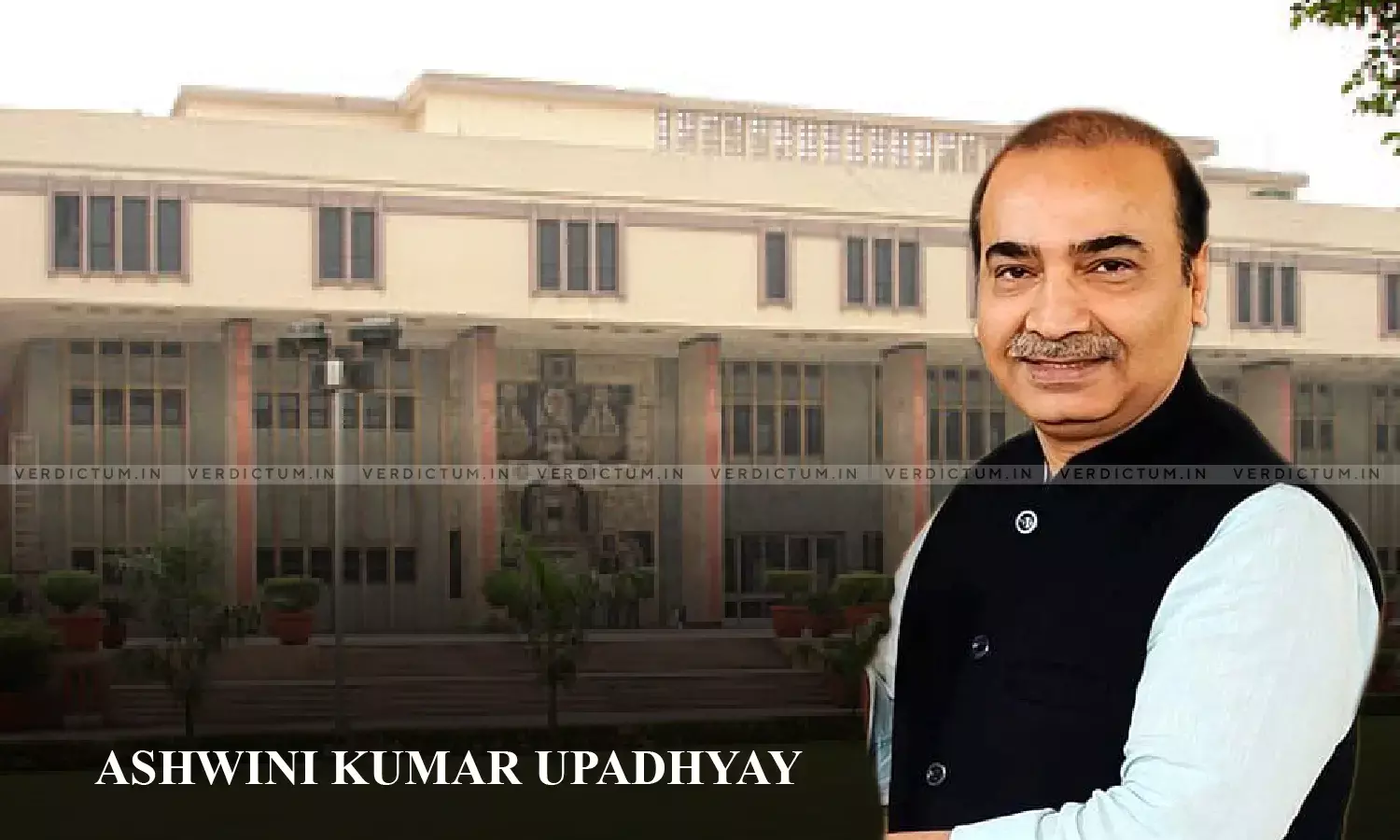Delhi HC Seeks Centre's Response On Ashwini Upadhyay's PIL Challenging Validity Of Waqf Act 1995

The Delhi High Court today sought a response from the Centre on Public Interest Litigation challenging certain provisions of the Waqf Act which grant special status to Waqf properties.
A Bench of Acting Chief Justice Vipin Sanghi and Justice Navin Chawla issued notice on the PIL by Advocate Ashwini Kumar Upadhyay and asked him to make the Waqf Board a party to the plea.
He told the Court that the Act was against secularism as there was no other law to administer the properties of other religions.
Additional Solicitor General Chetan Sharma, appearing for the Centre, said that petition raises substantial questions.
In his petition, the petitioner has sought a direction to the Centre to enact only Uniform Law for Trust and Trustees, Charities and Charitable Institutions, and Religious Endowments and Institutions and claimed that Waqf properties cannot enjoy any special rights which have not been given to other Trusts, Charitable and Religious Institutions being run by non- Islamic religious group.
Petitioner is challenging the validity of provisions of Waqf Act 1995, which is made under the garb of managing Waqf properties but there are no similar laws for followers of Hinduism, Buddhism, Jainism, Sikhism, Judaism, Bahaism, Zoroastrianism & Christianity. Hence, it is against the secularism, unity, and integrity of the nation, the petition has said.
The petition has submitted that the special status granted to Waqf properties is manifestly arbitrary, irrational, and offends Articles 14, 15 of the Constitution.
The Waqf Act has given wide and uncontrolled powers to Waqf Boards and Waqf Properties have been placed over and above other charitable religious institutions. No other enactment has conferred such wide powers and status, it has added.
The Board has been given the power to decide as to whether a particular property is a Waqf property or not and under section 40 it can question any property belonging to any trust or society and has the power to declare the same as Waqf property. No safeguard has been given to the persons whose property is being treated as Waqf property by the Waqf board and even they have no occasion or opportunity to know about the decision, if any, passed by Waqf Board under section 40, it added.
The petitioner has also argued that the creation of the Waqf Tribunal is arbitrary and every dispute of civil nature must be decided by a civil court. The petitioner also contends that the Waqf Act has no Statement of Objects and Reasons. Nevertheless, if it has been made under Entry-10 and Entry-28 of the Schedule-7 of the Constitution, then it must be gender-neutral and religion-neutral as per the petitioner.
The matter would be heard next on July 28.
With PTI inputs

